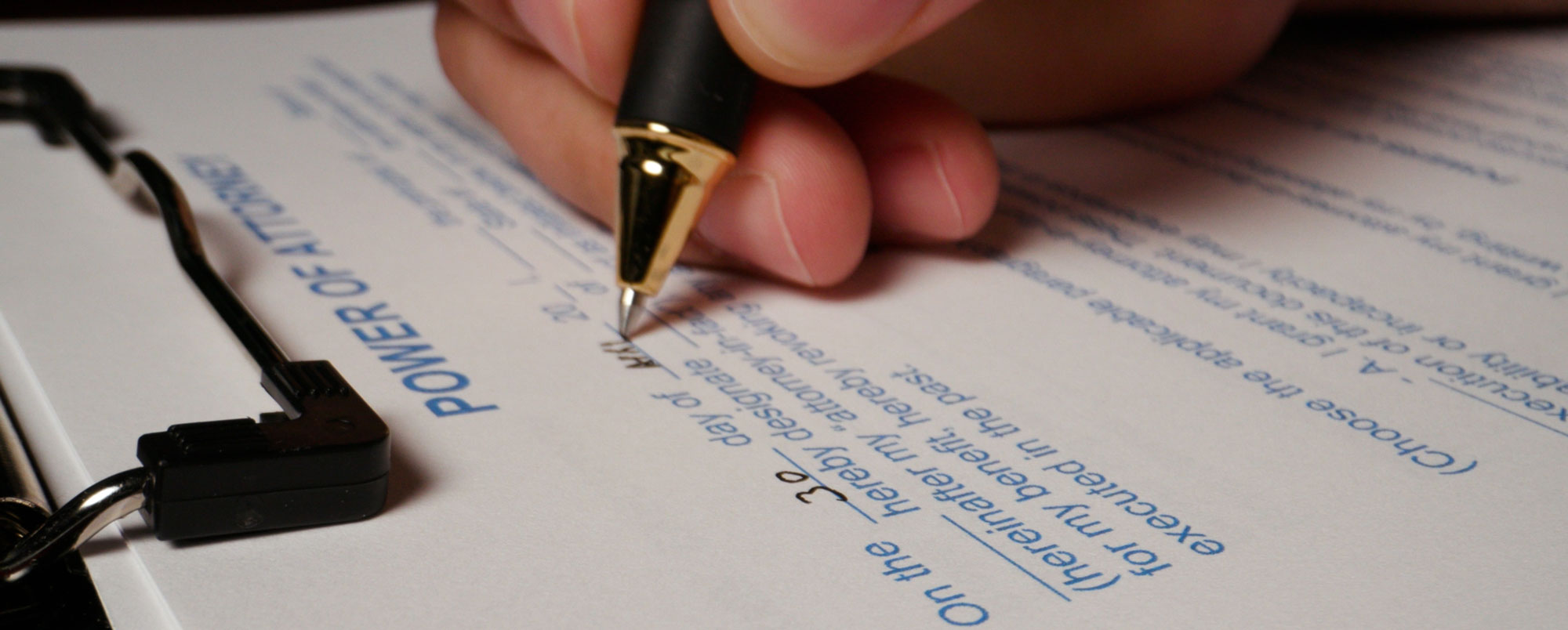A Power of Attorney (POA) is a legal document that grants an individual (the agent or attorney-in-fact) the authority to act on behalf of another person (the principal) in financial, legal, or healthcare matters. Establishing a POA in New Jersey is an essential step in estate planning, providing peace of mind that someone you trust will be able to manage your affairs if you become unable to do so. Understanding the different types of POAs and the process for creating one can help ensure your wishes are carried out effectively.
Types of Power of Attorney in New Jersey
There are several types of POAs, each serving a different purpose depending on the level of authority granted and when it takes effect:
- General Power of Attorney
- Grants broad powers to the agent, allowing them to handle financial transactions, sign documents, and manage the principal’s affairs.
- Typically used for convenience or when the principal anticipates needing assistance with financial matters.
- Durable Power of Attorney
- Remains in effect even if the principal becomes incapacitated.
- Ideal for long-term planning, ensuring someone can manage affairs if the principal is unable to do so.
- Limited (or Special) Power of Attorney
- Grants specific powers to the agent for a defined task or period, such as selling a property while the principal is out of state.
- Springing Power of Attorney
- Becomes effective only when a specific event occurs, such as the principal becoming incapacitated.
- Requires medical certification to confirm incapacity before activation.
- Medical Power of Attorney (Healthcare Proxy)
- Authorizes the agent to make healthcare decisions on the principal’s behalf if they cannot communicate their wishes.
- Often paired with an Advance Healthcare Directive to outline medical preferences.
Steps to Obtain Power of Attorney in New Jersey
The process of creating a POA in New Jersey is straightforward but requires careful planning:
- Choose the Right Type of POA
- Determine which type best fits your needs for financial management, healthcare decisions, or a specific legal matter.
- Select a Trusted Agent
- The agent should be responsible, trustworthy, and capable of handling assigned duties. This can be a spouse, adult child, relative, or attorney.
- Draft the POA Document
- The document must clearly state the principal’s name, the agent’s name, the powers granted, and any limitations.
- It should comply with New Jersey laws and be tailored to the principal’s specific needs.
- Sign and Notarize the Document
- New Jersey law requires the POA to be signed by the principal and notarized. Some financial institutions may also require witnesses.
- Provide Copies to Relevant Parties
- The agent should have a copy, and copies may also be provided to banks, healthcare providers, or attorneys for reference.
- Update or Revoke as Needed
- A POA can be revoked or updated at any time as long as the principal is mentally competent.
Why Establishing a Power of Attorney is Important
- Ensures Continuity – If you become incapacitated, a POA ensures that financial and healthcare decisions can be made without court intervention.
- Avoids Legal Complications – Without a POA, your loved ones may have to undergo a lengthy and costly guardianship process to gain legal authority.
- Gives You Control – You choose who will act on your behalf and define the scope of their authority.
Establishing a Power of Attorney in New Jersey is crucial in safeguarding your financial and healthcare decisions. Whether for temporary needs or long-term planning, a well-drafted POA ensures that your affairs are handled according to your wishes.
If you need assistance in drafting a legally sound POA tailored to your needs, The GC Law Firm is here to help. Our experienced attorneys can guide you through the process to ensure your interests are protected. Contact us today to schedule a consultation!
